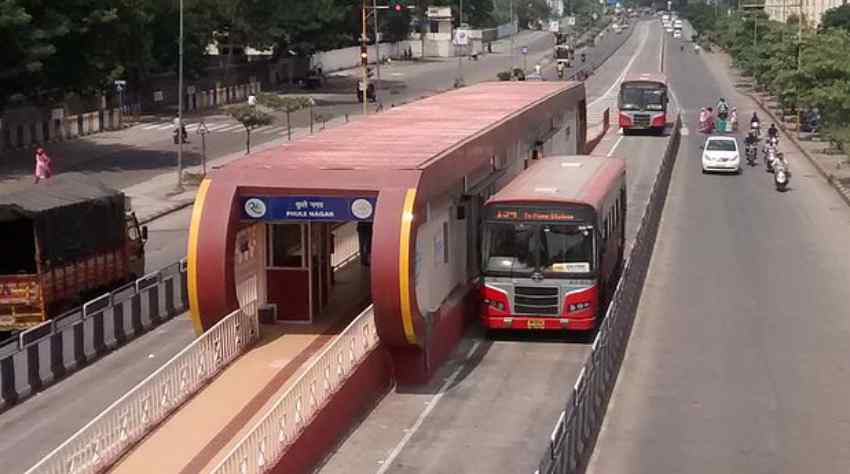Governments increased focus on improving road and transportation network under the Bus Rapid Transit System (BRTS) has given a boost to bus purchases helping the segment to broader the demand trend.
Already implemented in cities like Pune, Ahmedabad, Rajkot, Indore, Surat, Amritsar and Bhopal, BRTS has found several takers. Its acceptance as a smarter as well as cost saving alternative to the expensive projects like monorail and metro rail have pushed several state governments to implement it.
India’s largest (medium and heavy-MHCV) bus manufacturers Tata Motors and Ashok Leyland control 76% of the native MHCV bus market. The segment, announced nearly 10% rise in sales during April-November period, compared to the same period last year, according to data provided by the Society of Indian Automobile Manufacturers (SIAM).
The BRTS system thrives on dedicated bus plying corridors on routes within a city or connecting two or more cities. It has bus stations and automated fare collection centers, like the Janmarg system adopted by the Gujarat government for Ahmedabad. Buses are low floor with automatic transmission and the doors do not open unless the driver opens it.
Tata Motors medium and heavy bus sales rose by 17% in the April-November period in the domestic market to 11,221 units. It has also bagged an order for supplying 5,000 buses under BRTS scheme which is a total growth of about 82% according to company reports.
According to Tata Motors Ahmedabad, which operates 97 km of network under BRTS, is buying up to 300 buses every year. The city presently has about 250 buses running under Janmarg scheme and is rapidly growing its network. Janmarg has a greater average peak hour speed of 25-30 km/h as against 9-17 km/h of former traffic speed and ferries with around120,000 commuters.
According to a study by done by CIDCO and National Institute of Urban Affairs about 20 cities will have 28 bus mobility projects which will be developed at a cost of $200 million (Rs 1,400 crore). At least nine cities of the 63 eligible cities in India have adopted BRTS so far.
Tata Motors Looking Forward to Gain from BRTS Rollout


